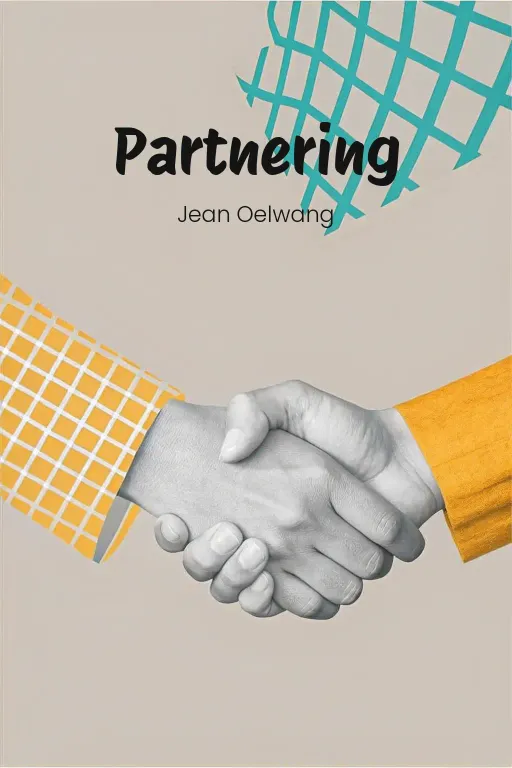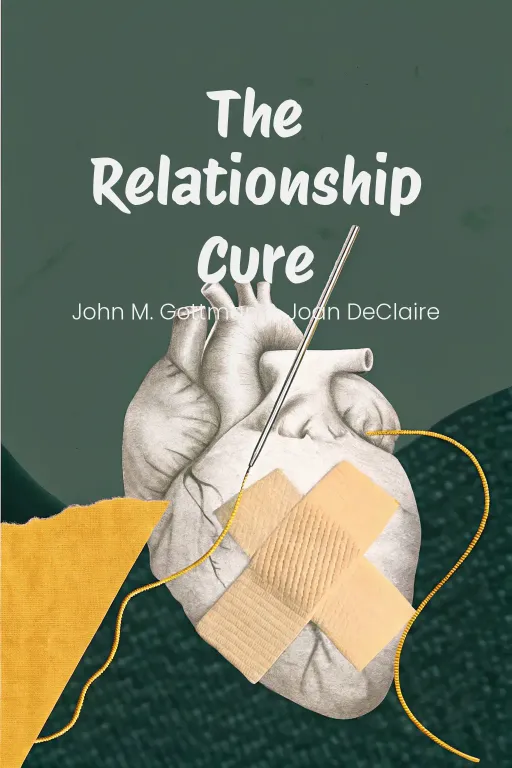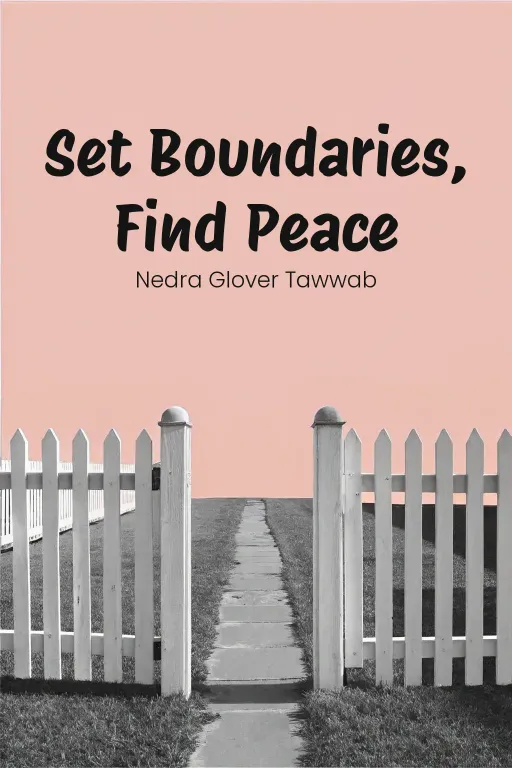
Decode His Signals: Build Your Best Relationship
Podcast by The Mindful Minute with Autumn and Rachel
What Men Really Think About Love, Relationships, Intimacy, and Commitment
Decode His Signals: Build Your Best Relationship
Part 1
Autumn: Hey everyone, welcome back! Today we’re jumping into a topic that could seriously change how you see relationships. Rachel, have you ever just wished there was some kind of manual for understanding men and women? Rachel: Oh, without a doubt. Although, I'd bet that any guide like that would be full of… let’s just say, “complexities”. Autumn: True! But luckily, Steve Harvey’s book, "Act Like a Lady, Think Like a Man," attempts to do just that—give women a practical guide to understanding men. It really digs into the "why" behind how men think and act, and it empowers women to set boundaries, get clear on what they want, and build the relationships they actually want. Rachel: So, it's basically a decoder ring for the male brain. Let me guess – lots of sports metaphors, right? And plenty of "strategic plays?" Autumn: Spot on! In this podcast, we'll break down three key lessons from Harvey’s relationship strategies. First, we’ll try to decode the male mindset—think of it as learning their secret language, you know? Second, we’ll dive into setting boundaries – your personal "rulebook" for making your expectations clear in any relationship. And third, we’ll get into how to cultivate lasting commitment—because all the best relationships take work to “really” flourish. Rachel: So, translating men, setting the ground rules, and then nurturing love like a garden? Sounds… ambitious, yeah. But alright, Autumn, I’m game. Let's get into this.
Understanding Male Psychology
Part 2
Autumn: Okay, so let's dive right in —understanding male psychology. Steve Harvey, in his book, really emphasizes that men’s behaviors and motivations in relationships often boil down to three key things: who they are, what they do, and what they earn. Rachel, does that strike you as, you know, the internal checklist most men carry around? Rachel: Yeah, in a broad sense, it rings true. I think culturally, we're kind of wired that way. From a young age, boys are often taught to tie their self-worth to achievements and the ability to “provide.” But here's my question: isn't this framing a little … dated? I mean, women are also out there killing it in their careers. Why this continued obsession with men as the breadwinners? Autumn: Good point, and the landscape has definitely shifted. But what Harvey emphasizes is that this isn't “just” societal —it’s deeply tied to self-identity for a lot of men. Take his story about being laid off from Ford Motor Company. Losing his job made him feel like he’d lost his purpose, even his worth as a partner. Rachel: Right, he talks about not being able to emotionally engage until his "house" was in order, right? Career, finances, all of that. But here's the tricky part: how do women navigate this? How do you tell if a guy's pulling back because he's genuinely sorting things out, or if it's, you know, just … a lack of interest? Autumn: Excellent question. The critical thing here, and Harvey stresses this a lot, is empathy and clarity. If his behavior changes—less communication, reluctance to talk about the future—that might indicate internal feelings of inadequacy. A guy who's not confident on where he's at in life may not have the capacity to fully commit. So, the right move involves asking open-ended, non-confrontational questions. Something like, "What are you working towards right now?" or "How can I support you?" Rachel: So instead of putting him on the defensive, you're opening a dialogue, huh? Practical. But here's the counterpoint: should women wait around for guys to "figure themselves out"? Isn't there a risk of being stuck in a loop where he’s perpetually "not ready"? Autumn: That's the catch, isn't it? Waiting shouldn't mean sacrificing your own needs or goals. If a man isn't emotionally available, women need to evaluate if the timeline aligns with what they want. Harvey's not saying women should fix or wait indefinitely. He’s saying: understand what drives him, but don't lose sight of your own priorities, you know? Rachel: Alright, point taken. Now, let’s get into how men actually express their love, or what Harvey calls "profess, provide, and protect." Autumn, can you break this down? Because I’ve got some thoughts on the whole "professing" thing. Autumn: Sure. Harvey presents this as understanding how men show commitment. First, professing. If he truly loves you, he'll introduce you with titles that signal commitment —“my girlfriend,” “my fiancée,” even “my forever headache” in some cases! It’s his way of showing pride in the relationship. What do you think, Rachel? Rachel: Okay, here's where my skepticism comes in. Tying love to public declarations works in traditional terms, sure, but is that the only layer? What about the introverted guys, or those who don't make grand public statements? Are they just out of luck? Autumn: True, not every man will profess affection the same way. But in Harvey's framework, it's less about the titles and more about wanting to claim the relationship. Actively showing the world he’s invested in you. If he consistently avoids even subtle acknowledgments—like introducing you as “just a friend”—that's a red flag, right? Rachel: Fair enough, though I'll still argue that the quieter guys might need alternative metrics. Let's move on to "provide"—fascinating because it reinforces the traditional notion of men as providers. Harvey ties that to financial security, emotional support, making sure his partner feels taken care of. But again, Autumn, are we bypassing partnership where both people share these duties? Autumn: Not at all. This isn't one-sided provision. What Harvey's getting at is how men equate being a good provider with showing love. It’s less about splitting financial responsibilities 50/50 and more about him striving to contribute meaningfully. Stepping up during stress, running errands, or being emotionally present —that's how many men show they care. Rachel: Got it. Then there's the last piece: protect. This, to me, feels like the most universal and least debatable. Most men, I think, are wired to step into the protector role—not just physically, but emotionally. Does that match your experience? Autumn: Definitely. Protection extends beyond physical safety to creating emotional security. Defending his partner from unkind remarks or shielding her from stress —those small acts communicate love. The takeaway for women is: while these gestures might seem understated, they’re often significant indicators of devotion. Rachel: So, if I follow all this —profess, provide, and protect —we’re saying men express love more through actions than words. Can we definitively say that's true of “most” men? Autumn: That's Harvey's argument. He’s urging women to reframe love from just words and romance to tangible, action-based evidence of care and commitment. But! Women must also voice their needs clearly so their partners can respond properly. It's a two-way street. Rachel: That's a fair point. Before we wrap this section, I want to touch on the emotional needs Harvey lays out: support, loyalty, and intimacy. This might be the most straightforward part, but it's surprising how often these get swept aside or misunderstood. What's your take? Autumn: Agreed! Starting with support—it’s more than just being a cheerleader. Appreciating what a man contributes builds confidence that propels a healthy relationship. A specific example Harvey shared was his mother complimenting small things like his haircut—having a lasting impact on his self-esteem. Rachel: And loyalty. That ties directly into trust. Nothing keeps a relationship going faster than knowing someone has your back, especially during setbacks. I’ll admit, though, Harvey’s blunt identification of intimacy—“the cookie”—raises some eyebrows. Are we oversimplifying physical closeness here? Autumn: Maybe, but the idea is valid: intimacy is often how men feel desired and connected. Open communication about differing emotional and physical priorities is key.
Setting Standards and Boundaries
Part 3
Autumn: So, understanding this male psychology, we can dive into practical ways to build healthy relationships. One key thing Harvey talks about is women setting clear standards and boundaries. Rachel, this is where it gets really practical, like a playbook, with things like the Ninety-Day Rule, using communication to set boundaries, and even asking specific questions to “vet” potential partners. Rachel: Okay, so we're not just figuring guys out, we're deciding what we want and, well, making sure we get it. “Setting standards,” huh? That sounds like it's for two groups of people: whoever is making the standards and whoever has to live up to them. What exactly does “standards” even mean here? Autumn: That's a great question. Harvey sees standards as a way of showing your self-worth – the limits you set to show the world, especially guys you might date, what you will and won't put up with. It's saying, "This is who I am, and I respect myself enough to stand by these principles." It's not about being super strict, but about being clear, which builds respect. Rachel: Okay, so in dating terms, boundaries are like the rules of a game, right? You're saying, "Here's how we play fair." But if someone keeps breaking the rules or changing them, what do you do? Do you call them out? Autumn: Exactly! Harvey tells a story about a woman whose boyfriend kept canceling their plans, and she didn't say anything. She felt really disrespected. She realized she wasn't holding him responsible because she hadn't made her boundaries clear. Once she finally said, "My time is important, and I can't deal with last-minute cancellations," things changed. He started respecting her time, and she felt better. The key was showing her own value through what she said. Rachel: Okay, real talk: why don't people set boundaries? Are they scared of fighting? Scared of being dumped? Or do they just think things will magically get better if they don't have that awkward conversation? Autumn: It's usually a mix of things. Fear is a big part of it – fear of seeming "too demanding" or losing the relationship. But Harvey says not setting boundaries early on just makes things worse later. When you're kind and consistent with your boundaries, you're more likely to draw people in. Instead of pushing them away, it’s more likely to create a healthier environment. Rachel: Fair enough. Now, let's get to this infamous Ninety-Day Rule. I've heard whispers of this, and I have… thoughts. So, explain it to me like I've been living under a rock for the last three months. Autumn: So, the Ninety-Day Rule is something Harvey borrowed from the business world. It’s a probationary period. The idea is to hold off on getting intimate for at least 90 days so you can really see the kind of person he is and what he's really after. It's not a game; it's about giving yourself time to figure out who he is before things get too complicated. Rachel: So, basically, it's "Show me you're consistent before I commit." But isn't there a risk of it feeling kind of like a business deal? Like, "Wait 90 days, and you unlock the next level!" That might work in a video game, but in a relationship? Autumn: I see what you're saying. But Harvey isn't suggesting you dangle something in front of someone. It’s more about giving you time to connect. It's about watching what he does during those 90 days. Does he do what he says he will? Is he kind and caring? Or is he pushing you and being impatient? Waiting helps you see these things. A woman's value shouldn't depend on how fast she says "yes" to getting intimate. By waiting, she can better see how much respect he has for her and how serious he is about the long-term. Rachel: All right, that makes sense. But I'm curious to hear some stories about when this actually worked. Did he give any examples where the Ninety-Day Rule actually made a difference? Autumn: For sure. Harvey talks about a woman who didn't think it would work—she thought it would scare guys off. And you know what? It did scare some guys off, and that was the point! For example, one guy she dated got distant when she wouldn't get intimate right away, which showed he wasn't really committed. But then she met someone who respected her boundary and took the time to show her he was serious. They spent those 90 days building trust, and when they did finally get intimate, it made their bond even stronger because they had a solid foundation. Rachel: So, the point isn't just about waiting, it's about telling the difference between someone who’s serious, and someone who’s not. Got it. Now, what about these five key questions Harvey suggests for judging long-term compatibility? I like the idea of a relationship interview – hey, why not treat dating like you're hiring for the most important job of your life? Autumn: Exactly! Harvey sees these questions as a way to get clear on not just what a guy wants but whether his values line up with yours. Take, "What are your long-term goals?" It's simple, but it can tell you a lot. If a guy has ambitions – personal, professional, or relationship-wise—it shows he's thoughtful and mature. If he just shrugs and says, "I don't know" or "I'm just going with the flow," that might mean he's not really thinking about the future. Rachel: Yeah, "just going with the flow" is like saying "We'll circle back" in the business world – it means "I have no idea what I'm doing." What about asking, "What are your thoughts on relationships?" That seems super important, but so many people don't ask it. Autumn: Totally. It's about seeing not just what they think but how they feel too. A thoughtful answer like, "Relationships need trust and support" shows they value the qualities that make partnerships work. But if they're vague or uninterested – like they're trying to dodge the question – that can be a red flag that they're not emotionally available. Harvey shares a story about a woman who asked this question after dating a guy for years and not knowing where they were headed. His meh response made her realize they wanted different things, and she broke up with him to find someone who matched her values better. Rachel: That’s brave, but I’m wondering: once you’ve asked all these questions, how do you balance what he says with what he does? I feel like you need both to really know someone. Autumn: Good point. Harvey is very clear that words are important, but actions tell the real story. It’s not enough for someone to say they value loyalty, if their behavior doesn’t match it. Things like the Ninety-Day Rule and these conversations are the perfect way to see his actions over time, making sure his words and actions align. Rachel: Alright, so we know about standards. Let's wrap up with talking about how to actually talk about all this. Setting boundaries well has gotta be an art, right? How do you set limits without making it an ultimatum? Autumn: Harvey says it’s all about tone. Be kind and collaborative. State your needs in a positive way. For instance, instead of accusing someone of not making time for you, you could say, "It means a lot to me when we spend focused time together." That way, you're inviting them to change instead of just criticizing them. And then there's being consistent – once you set a boundary, stick to it. Harvey gave the example of a woman who stopped responding to late-night texts from a guy she was seeing. When he realized she wasn’t going to put up with being treated casually, he started being more respectful of her time. Rachel: So, a mix of being nice and being firm. Got it. But here’s my takeaway: boundaries aren’t just how you manage someone else—they’re how you value yourself. Keep your standards high, and the right people will meet them. Do I sound like I’ve been paying attention, Autumn? Autumn: You do! Setting boundaries isn’t about control; it’s about self-respect. And when women prioritize clarity, kindness, and consistency, they create relationships that thrive on mutual understanding and shared purpose.
Commitment and Personal Growth
Part 4
Autumn: So, with these strategies under our belts, let's zoom out and look at commitment and personal growth in relationships more broadly. It's all well and good to understand how men think or set boundaries, but then what? How do we actually apply this to build something lasting, not just a fling? Rachel: Okay, so, we're not just learning the rules of the game anymore, we're talking about building the whole team now? I like that. Let me guess, you're going to cover everything from aligning future goals to making sure personal growth and space are still a priority, right? Autumn: Precisely, Rachel. We’re going to explore what it takes to go from dating to a real commitment. The key here is shared goals, dealing with family stuff when necessary, juggling independence with emotional connection, and, of course, building trust. All of that combines to create a strong base for a lasting relationship. So, let's start with the basics: how do you even transition from just dating to actually being committed? Rachel: Right off the bat, I’m wondering—what are the signs that someone is ready to take that leap? And more importantly, how do you know if you both want the same thing, especially early on? Autumn: Excellent questions. Harvey says it all starts with open, honest communication. You've got to ask the tough questions early on, even if they make you squirm. For example, talking about where you see yourselves in a year, or five years. He mentions a couple who had a very straightforward conversation over dinner. The woman simply asked, "Where do you see this relationship going in a year?" No pressure, just a calm way to see if they were on the same track. Rachel: And what if the guy just freezes up at that question? Like, "Um, never really thought about it"? Autumn: Exactly! That’s why you ask. If he’s vague or avoids it, that's a red flag. It’s not just about discussing your future—it's about seeing how emotionally mature he is and what his intentions are. But if he’s clear and says something like, “I can see us heading towards something serious, maybe even marriage,” and that lines up with what you want, that's a good sign. You've laid the groundwork for holding each other accountable. Rachel: I see the logic: Get clear upfront to avoid problems down the road. But what happens if you discover you actually don't want the same things? Like, one person definitely wants kids, and the other… not so much? Autumn: Misalignment is tough, no doubt, but better to know sooner rather than later. If your goals don't match up—whether it’s about kids, marriage, or lifestyle—then you need to really think about whether staying together makes sense. The earlier you talk about these things, the easier it is to deal with potential deal-breakers before things get too intense. Rachel: So, basically, rip off the Band-Aid if you have to. Okay, what's the next piece? How do you handle blending families? Tell me about family dynamics. What do you do when you have kids involved? Autumn: Ah, right. This is definitely one of the trickiest parts of commitment, especially for single parents. Harvey suggests taking things slow and introducing new partners to family routines in a relaxed, natural way. He gives an example of a single mom who introduced her partner to her kids at a casual outing in the park. It wasn’t a formal, high-pressure introduction. It just gave them time to hang out and interact without any pressure. Rachel: Interesting. So, not "dinner with dad’s girlfriend at a fancy restaurant," but "let’s just chill and see if we click." That feels a lot more real, actually. Autumn: Exactly! The mom could see how her partner interacted with her kids—playing with them, joining in without forcing it. And that helped her see him not just as a romantic interest, but as someone compatible with her family. Rachel: And I guess this also helps you see any red flags early on, too. Like, if the partner seems distant or just doesn’t engage with the kids at all—that’s a bad sign, right? Autumn: Absolutely. Harvey stresses that if a partner is hesitant or disinterested in connecting with your children, that's a big cue to rethink things. Introducing someone into your children’s lives isn’t just about what you want; it's about protecting their emotional well-being. Rachel: That’s heavy, but so true. Okay, how about independence? Balancing independence with a strong emotional connection feels like a constant struggle these days—especially we're dealing with strong, independent women. Autumn: It really is. Harvey points out that sometimes, being too independent can unintentionally make it seem like you don’t actually need a partner—when really, it’s about finding a good balance. He shares a story about a woman who was a high-powered executive and a single mom. She realized that her self-reliance was actually pushing people away. Rachel: Wait, let me guess—she was giving off "I've got this, don't need you" vibes? Autumn: Precisely. It wasn’t on purpose, but it made her partner feel like he wasn't needed. Once she realized that, she made an effort to let him in a little more. It wasn’t about giving up her independence, but about being vulnerable enough to say, “I want your support and companionship.” Rachel: Yeah, I can see how that could change things. But doesn’t this bring us back to the compatibility question? I mean, what if one partner wants tons of independence, and the other wants to be needed all the time? Autumn: That’s where the balance comes in, right? It's not about either person completely changing; it’s about finding ways to respect both their individual needs and the need for closeness. She started including her partner in family decisions, asking for his opinion more. It was a small thing, but it helped them connect more without her feeling like she was losing herself. Rachel: Got it. And now, let's talk about trust—the holy grail of relationships. What does Harvey say about trust in a committed relationship? Autumn: Harvey says trust grows from consistent actions that back up your words. He talks about a woman whose partner was always there to help with practical stuff—fixing her car, making sure he was at her kids' events. They weren’t huge, dramatic gestures, but they showed he was reliable over time. Rachel: Yeah, like the saying, "Trust is built in small moments.” And I’m guessing the opposite is true, too: it’s not always one big betrayal that breaks trust, but a lot of small inconsistencies. Autumn: Exactly. When your actions and words don’t match up, trust starts to disappear. But when they do, it creates that sense of safety and security that a relationship needs to really thrive. Rachel: So, basically, the roadmap to a lasting relationship is one part clear communication, one part consistency, and one part mutual respect. Simple in theory, incredibly complex in practice. Autumn: Exactly right. These steps—getting on the same page, blending families, balancing independence, and building trust—they all tie back to Harvey’s main point: commitment is about respecting yourself and growing intentionally.
Conclusion
Part 5
Autumn: Okay, so to sum up Steve Harvey's “Act Like a Lady, Think Like a Man”, it's really a pretty insightful guide for understanding relationships. We've talked about three main things: getting how men think, setting clear and kind boundaries, and moving from just dating to something more serious. From figuring out how men show love to building self-respect with your own rules, the point is pretty clear: good relationships need understanding, effort, and shared values. Rachel: Right, Autumn, and what I found interesting is that it's not about playing games or trying to control things. It's more about knowing yourself, making your expectations clear, and really trying to find a relationship that makes your life better, not worse. Whether it's the Ninety-Day Rule, asking those five important questions, or dealing with things by being independent and trusting, the advice is both useful and thought-provoking. Autumn: Absolutely, Rachel. And this is what we want our listeners to remember: before you can have a great relationship with someone else, you have to decide what you deserve and stick to it. You need to know when to compromise, but also when to move on. Relationships that are clear, respectful, and involve effort from both sides are the ones that last. Rachel: So, maybe it all comes down to this: love isn't just about finding the right person; it's about being the right person, too. Thanks for listening, everyone, and remember to ask for the love and respect you deserve. After all, it's a two-way street, isn't it? Autumn: Couldn't agree more, Rachel. Thanks for tuning in, everyone, and we'll talk to you next time!









